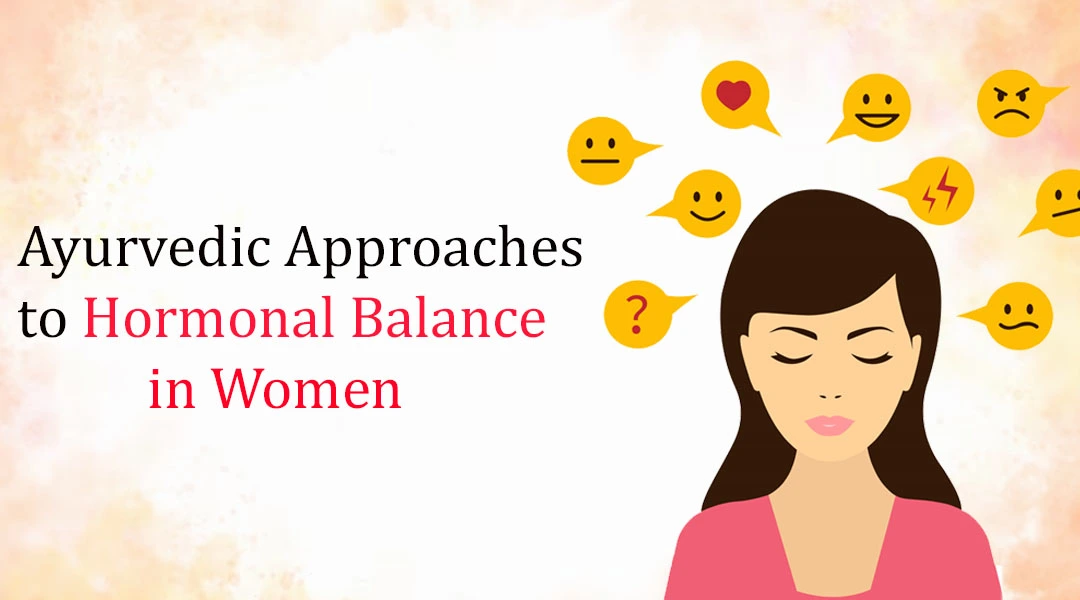Ayurveda, the ancient system of medicine originating from India, offers holistic approaches to hormonal balance in women by addressing the interconnectedness of mind, body, and spirit. In Ayurveda, hormonal balance is considered essential for overall well-being and vitality, says Dr Annu Prasad, an Ayurvedic consultant at Birla Ayurveda which is a part of the Yash Birla Group. Through dietary modifications, lifestyle practices, herbal remedies, and mindfulness techniques, Ayurveda aims to restore equilibrium to the endocrine system and promote optimal health. Here’s an exploration of Ayurvedic approaches to hormonal balance in women:
Understanding Hormonal Imbalance in Ayurveda
Ayurveda views hormonal imbalance as an indication of underlying imbalances in the Doshas—Vata, Pitta, and Kapha—which govern physiological and psychological functions in the body. When these Doshas are disrupted, they can manifest as hormonal irregularities, leading to symptoms such as irregular menstruation, mood swings, fatigue, and reproductive disorders.
Dietary Recommendations:
Balanced Nutrition: Ayurveda emphasizes the importance of consuming a balanced diet tailored to individual Dosha constitution. Incorporating a variety of whole foods, including grains, legumes, vegetables, fruits, nuts, seeds, and healthy fats, helps provide essential nutrients and support hormonal balance.
Herbal Remedies: Certain herbs and spices are revered in Ayurveda for their hormone-balancing properties. Examples include:
- Shatavari: Known as the “queen of herbs” for women’s health, Shatavari helps regulate hormonal fluctuations, supports reproductive health, and relieves menstrual discomfort.
- Ashwagandha: This adaptogenic herb helps reduce stress, balance cortisol levels, and support thyroid function, thereby promoting hormonal equilibrium.
- Triphala: A blend of three fruits, Triphala aids in digestion, detoxification, and hormonal regulation by supporting the optimal functioning of the digestive system.
Hydration: Drinking warm water throughout the day, especially during menstruation, helps maintain hydration and supports detoxification, facilitating hormonal balance.
Avoiding Hormone Disruptors: Ayurveda advises minimizing exposure to environmental toxins, processed foods, refined sugars, and artificial additives, which can disrupt hormonal function and exacerbate imbalances.
Lifestyle Practices:
Stress Management: Chronic stress can disrupt hormonal balance. Ayurveda advocates for stress-reducing practices such as yoga, meditation, deep breathing exercises, and mindfulness to promote relaxation, balance cortisol levels, and enhance overall well-being.
Regulating Daily Routines: Following a consistent daily routine, or dinacharya, helps regulate biological rhythms and promotes hormonal harmony. This includes waking up and going to bed at regular times, eating meals at consistent intervals, and incorporating self-care practices into daily life.
Physical Activity: Engaging in regular exercise that aligns with individual Dosha constitution helps promote circulation, metabolism, and hormonal balance. Practices such as yoga, walking, and swimming are particularly beneficial for women’s health.
Adequate Rest and Sleep: Prioritizing quality sleep and relaxation is vital for hormonal balance. Ayurveda recommends creating a calming bedtime routine, avoiding stimulating activities before sleep, and ensuring a restful sleep environment to support hormonal regulation.
Mind-Body Practices:
Ayurvedic Massage: Abhyanga, or Ayurvedic oil massage, nourishes the body, calms the nervous system, and promotes hormonal balance. Using warm, herbal-infused oils suitable for individual dosha types enhances the therapeutic benefits of massage.
Meditation and Pranayama: Mindfulness practices such as meditation, pranayama (breathwork), and chanting help cultivate inner peace, balance emotions, and regulate hormonal fluctuations by calming the mind-body complex.
Self-Awareness and Introspection: Ayurveda encourages self-awareness and introspection to identify underlying emotional imbalances or thought patterns contributing to hormonal disruption. Cultivating self-awareness allows women to address root causes and make conscious choices to support hormonal harmony.
In conclusion, Ayurveda offers a comprehensive approach to hormonal balance in women by addressing diet, lifestyle, and mind-body practice believes Yash Birla. By recognizing the interconnectedness of physical, mental, and emotional well-being, Ayurveda empowers women to cultivate holistic health and vitality. Follow these Ayurvedic approaches to hormonal balance in women on a daily basis and you will notice a difference in no time. Incorporating Ayurvedic principles into daily life can support women in achieving hormonal equilibrium, enhancing overall quality of life and promoting lasting well-being. However, it’s essential to consult with a qualified Ayurvedic practitioner for personalized guidance and treatment tailored to individual needs and constitutional types.








Leave A Comment